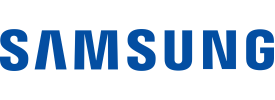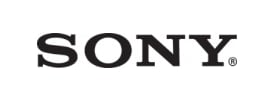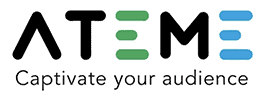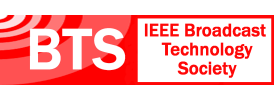- About
- Members
- Sponsors
- Subcommittees
- Technical Documents
- News
- Events
- Spotlight ATSC 3.0
- Contact Us
- Member Login
- Member Meetings
- Advanced Search
Search Site
Member Links
- About
- Members
- Sponsors
- Subcommittees
- Technical Documents
- News
- Events
- Spotlight ATSC 3.0
- Contact Us
- Member Login
- Member Meetings
- Advanced Search
Madeleine Noland2016 Lechner Award Recipient
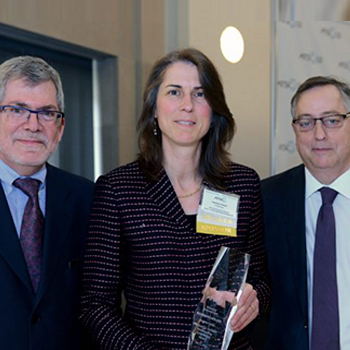
WASHINGTON, May 11, 2016 – The Advanced Television Systems Committee (ATSC) named Madeleine Noland as the 2016 recipient of the organization’s highest technical honor, the Bernard J. Lechner Outstanding Contributor Award. The presentation was made today during the 2016 ATSC Broadcast Television Conference at the Ronald Reagan International Trade Center. Noland is Senior Director of Standards and Technology at LG Electronics.
The Lechner Award is bestowed once a year to an individual representative of the membership whose technical and leadership contributions to the ATSC have been invaluable and exemplary. The title of the award recognizes the first recipient, the late Bernard Lechner, for his outstanding services to the ATSC. The honoree is selected by the ATSC Board of Directors.
“Every year we are grateful that we have so many hard-working volunteers whose service merits consideration for the Lechner Award. This year we are pleased to present this honor to Madeleine Noland for her extraordinary leadership and contributions to the development of ATSC 3.0,” said ATSC President Mark Richer.
“Madeleine is a natural leader with remarkable management skills. She uses these skills to forge agreements on challenging technical issues within the collaborative standards development process. Her outstanding leadership in the development of ATSC 3.0 is a key factor in the rapid advancement of the next-generation broadcast standard,” Richer added.
As the chairman of the Specialists Group on Applications and Presentation for ATSC 3.0 (TG3/S34), Noland has demonstrated outstanding leadership and dedication. The S34 committee is focused on user experience, including support for video and audio codecs, linear TV services, interactive applications, accessibility including closed captioning, and other features.
She leads the effort to develop key ATSC 3.0 features, including vetting of emerging standards for Electronic Services Guides, Content Advisories, Emergency Alerting, Personalization and Companion Devices. The same group is also forging compelling optimized video formats, as well as High Dynamic Range and Wide Color Gamut solutions.
Additionally, as Vice Chair of the S31 Specialists Group, Madeleine has helped to frame the system requirements for ATSC 3.0, coordinating the full implementation of the new standard with the work of other committees. She played an active role in developing usage scenarios that describe the desired attributes of the new standard.
Noland began her career in television systems with Back Channel Media (BCM) in 2004. BCM created Clickable TV, an end-to-end interactive television system for local broadcast stations. It was during her work with BCM that she first started working on ATSC projects. After BCM, Madeleine moved on to Product and Project Manager roles at Telvue Corp., successfully guiding the company to consensus on its product roadmap.
Through her involvement in industry standards work, Noland’s work was noticed by long-time ATSC member LG Electronics, and she joined their ATSC 3.0 team in early 2013. An alumna of the University of Massachusetts, Madeleine is also a talented wind synth and keyboard player in a band called Eccentric Orbit. Noland is credited on three U.S. patents for television technology.
News Categories
News Archives
Subscribe
Subscribe to The Standard, our monthly newsletter. Learn More
Join ATSC
ATSC is a membership organization with both voting and observer categories. Voting members include corporations, nonprofit organizations, and government entities, and they participate actively in the work of ATSC. Observers are individuals or entities not eligible to be a voting member.
Subscribe to our Newsletter
Subscribe to The Standard, our monthly newsletter, to stay up-to-date with ATSC news and events around the world.
Site Links
Contact Us
Advanced Television Systems Committee, Inc.
1300 I Street NW, Suite 400E
Washington, DC 20005
Do you have questions about ATSC?
About ATSC
The Advanced Television Systems Committee, Inc., is an international, non-profit organization developing voluntary standards and recommended practices for digital terrestrial broadcasting. ATSC member organizations represent the broadcast, broadcast equipment, motion picture, consumer electronics, computer, cable, satellite, and semiconductor industries. ATSC also develops digital terrestrial broadcasting implementation strategies and supports educational activities on ATSC standards.
© 2025 ATSC






